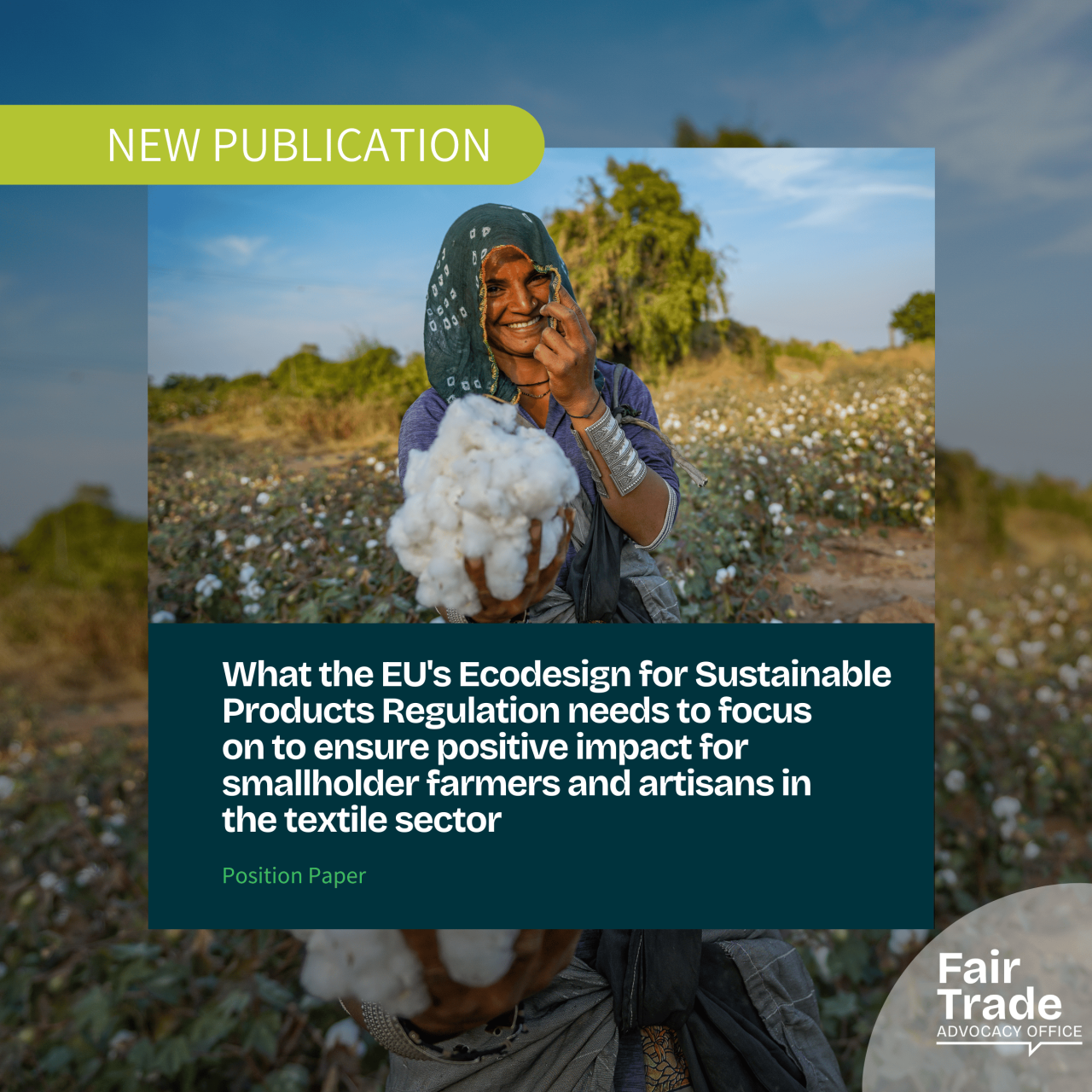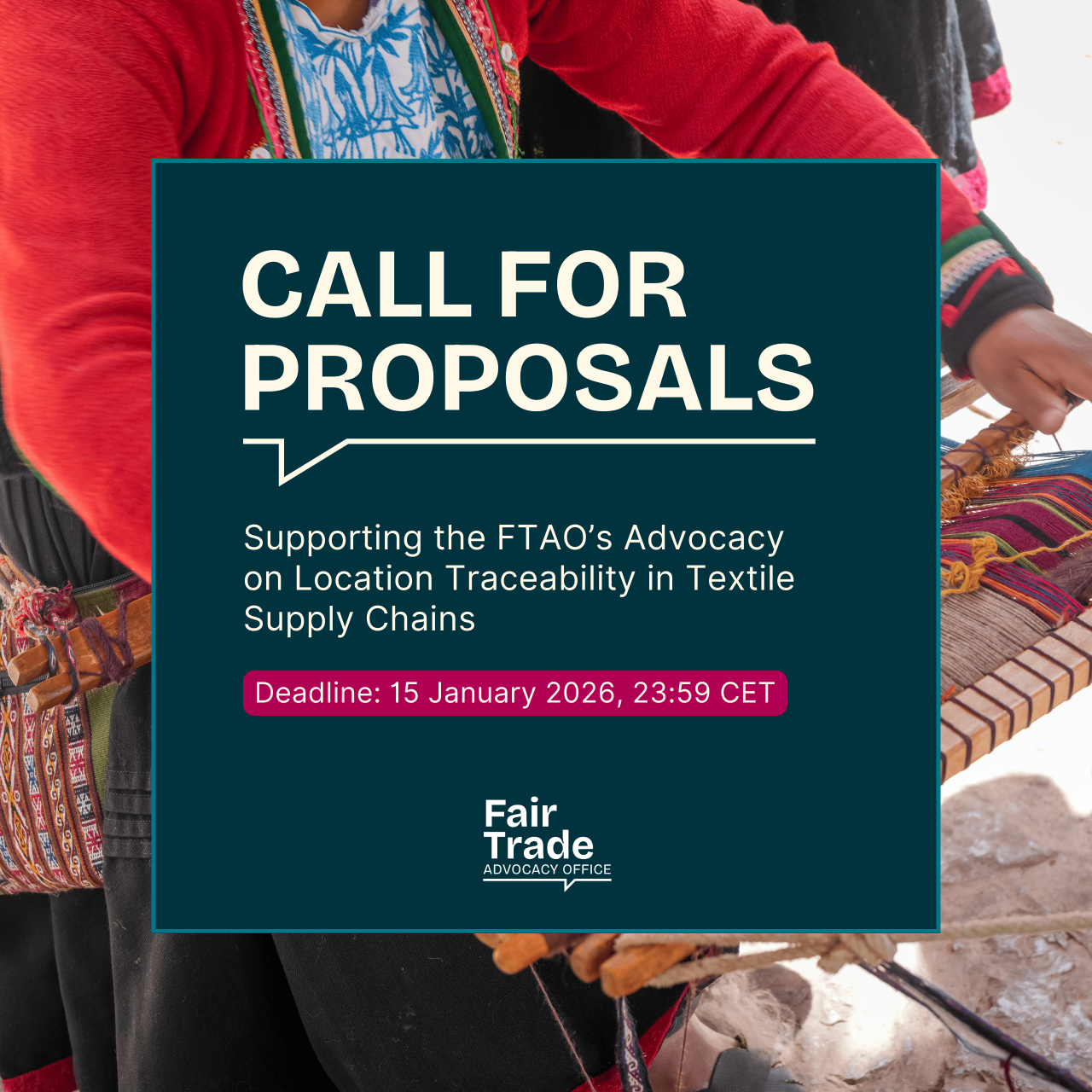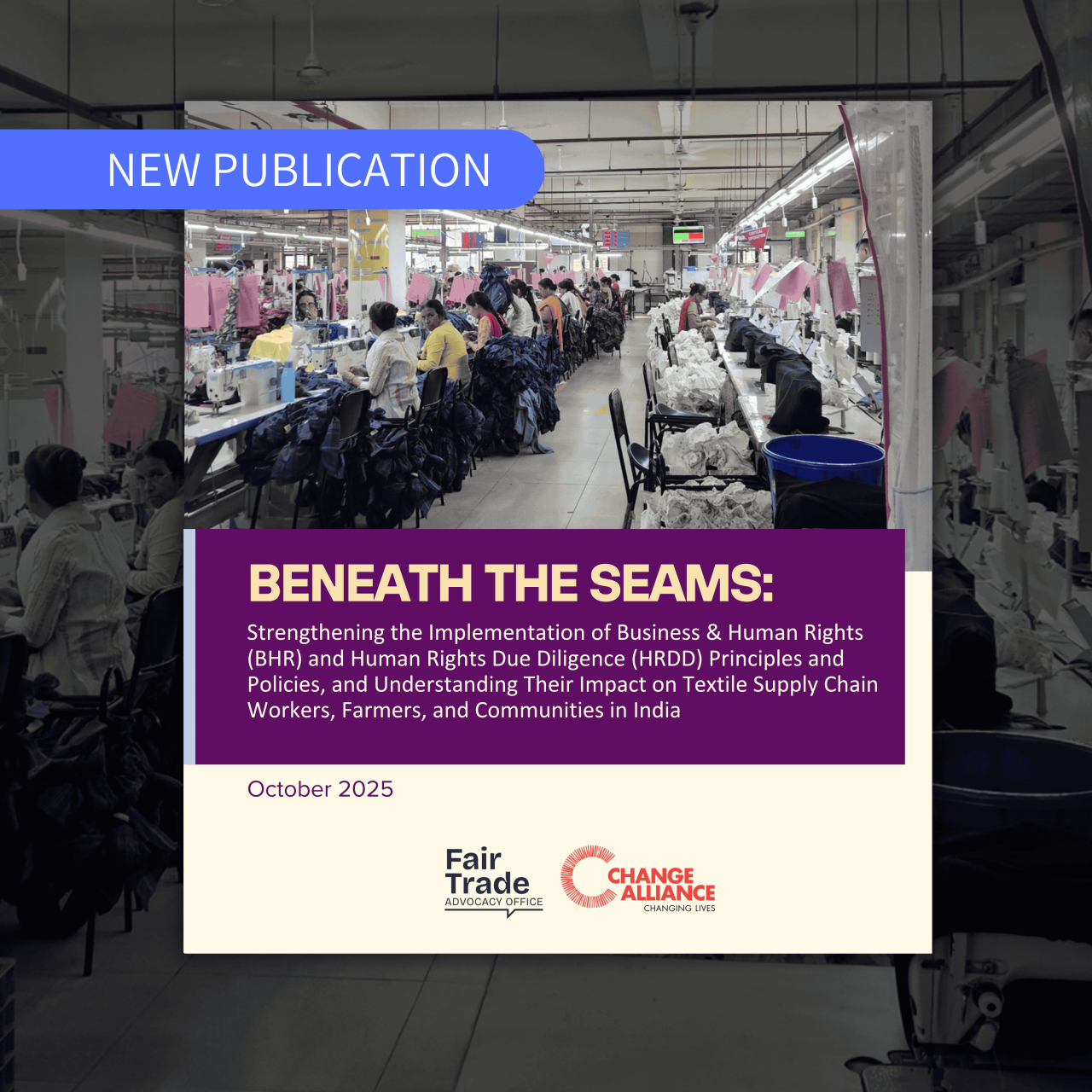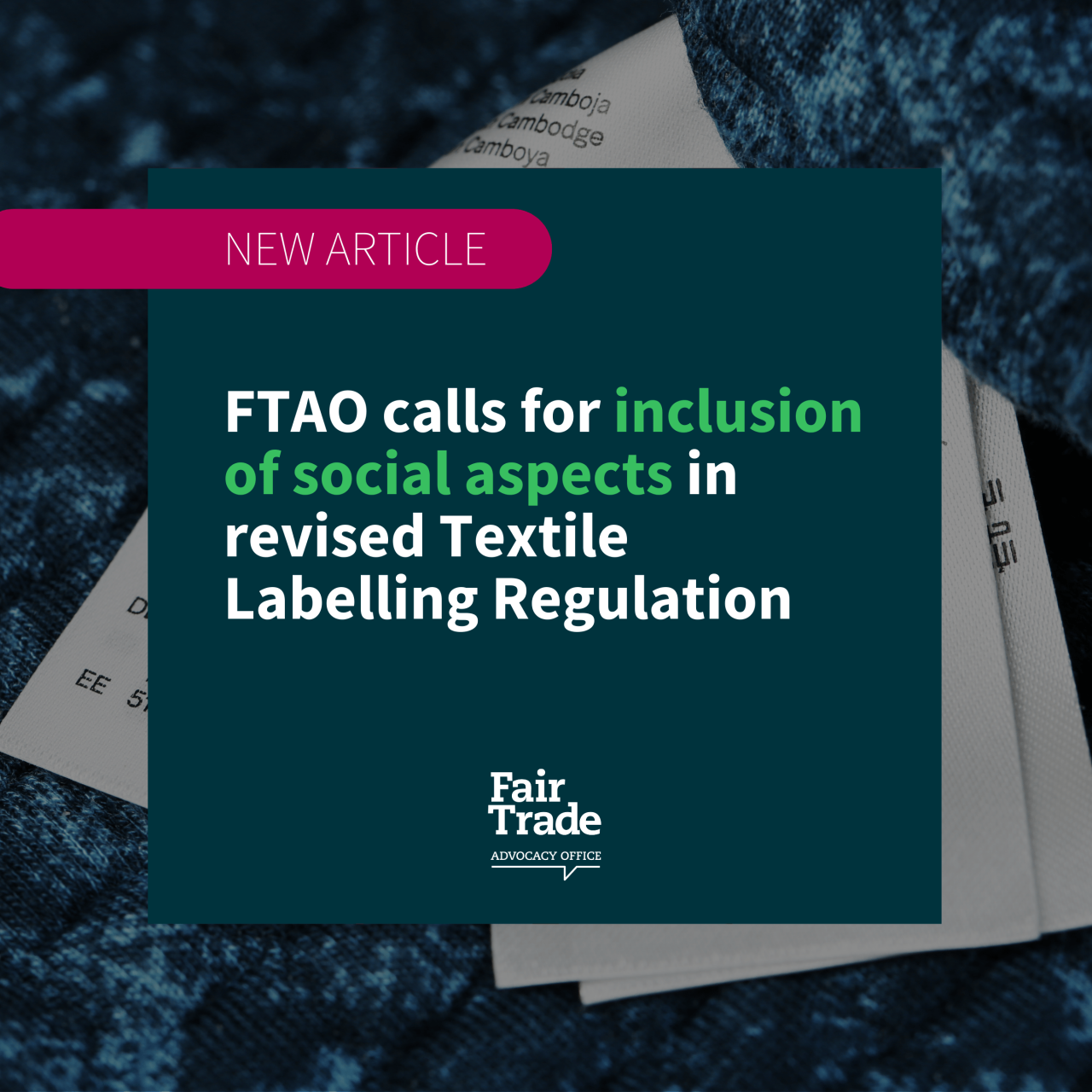What the EU's Ecodesign for Sustainable Products Regulation needs to focus on to ensure positive impact for smallholder farmers and artisans in the textile sector

The Ecodesign for Sustainable Products Regulation (ESPR) is groundbreaking legislation aimed at banning the least sustainable products by setting clear requirements on product design, production and performance. The Fair Trade Advocacy Office (FTAO) is committed to strengthening this regulation, particularly in the design and implementation of the delegated act on textiles and the establishment of a truly transparent, accessible and unlimited digital product passport, transforming the fashion industry into one that benefits both the planet and its people.
This paper outlines FTAO’s position and key recommendations for the ESPR, under which the European Commission will issue a delegated act on textile products, which will set minimum performance criteria and information requirements, expected by the end of 2026 or early 2027.
We pay particular attention to the implications of the ESPR for smallholder cotton farmers, artisans, and the Fair Trade Movement. To ensure continued market access for these key stakeholders, it is crucial that the textile performance criteria are aligned with their capacities and realities. This paper discusses the necessary Ecodesign criteria to ensure a positive impact on these groups.
Read the full paper here.
More From The Workstream

CALL FOR PROPOSALS: Supporting the FTAO’s Advocacy on Location Traceability in Textile Supply Chains

The FTAO launches Textiles Advocacy Strategy Group to strengthen global voices in EU textile policy

Beneath the Seams: Strengthening Human Rights Due Diligence and its impact on textile workers, farmers and communities in India
